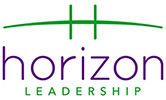In North America, we live in a culture that promotes independence and self confidence. These attributes above all else, are seen as indicators of success. In promoting this, we are marginalizing the voice of “I don’t know”. Instead, people are praised for putting on a brave face that they’ve got everything together…they know the answers. And if they don’t, they will figure it out. What I am describing above is becoming one of the hot topics for the clients that we coach. These leaders are often feeling they must carry the burden of solutions on their shoulders alone. They believe it is not safe to reveal what they don’t know, nor is it safe to ask for help…or so they think.
Dr. Deborah Sherani identified the following myths related to asking for help.
MYTH: It makes us look vulnerable
MYTH: Holding things in and keeping personal issues under wraps keeps us secure MYTH: It bothers others
MYTH: Highly successful people never ask for help
MYTH: I am a giver. I don’t like it when others help me
It’s time for a major reframe on how we perceive asking for help. Instead of it being something that minimizes our power, we need to cultivate it as a skill that promotes great teaming, enhanced creativity, and advances productivity. Imagine how liberating it would feel to shake off the shackles of fear by asking for help!
Truth be told, this is one of the most important leadership lessons that I had to learn. That’s why I’m so passionate about developing this skill in our clients. For me, asking for help has become so liberating. I’ve discovered that by asking for help I have become more “real” and more approachable. This has enhanced my friendships, work collaborations, and my marriage. Having crossed the edge myself, I encourage you to try it…just a little bit and see what you discover.
At Horizon Leadership Institute, we are huge advocates of a strengths based approach to leadership. Using StrengthFinder 2.0, an assessment pioneered by the Gallup organization, we help our clients identify their top strengths. The concept is simple – maximize your strengths and learn how to manage your weaknesses. Learning to manage weaknesses is based on appreciating the strengths in others and partnering with them to create powerful outcomes. When everyone works from their strengths, a sense of confidence is built. Through intentional collaborations with people with complementary strengths mutual support and trust is created. This is a powerful stance where asking for help means you are appreciating the strength of yourself and others. Everyone gets to be in their power.
We still need to work with the limiting personal and cultural beliefs that influence our perceptions about asking for help. This can be done at an individual as well as team level. For tips on reframing asking for help, check out Dr. Deborah Serani’s blog.
Share your fears of asking for help or stories when it’s been a wildly positive experience. We encourage a diversity of voices as everyone holds a part of the truth.

